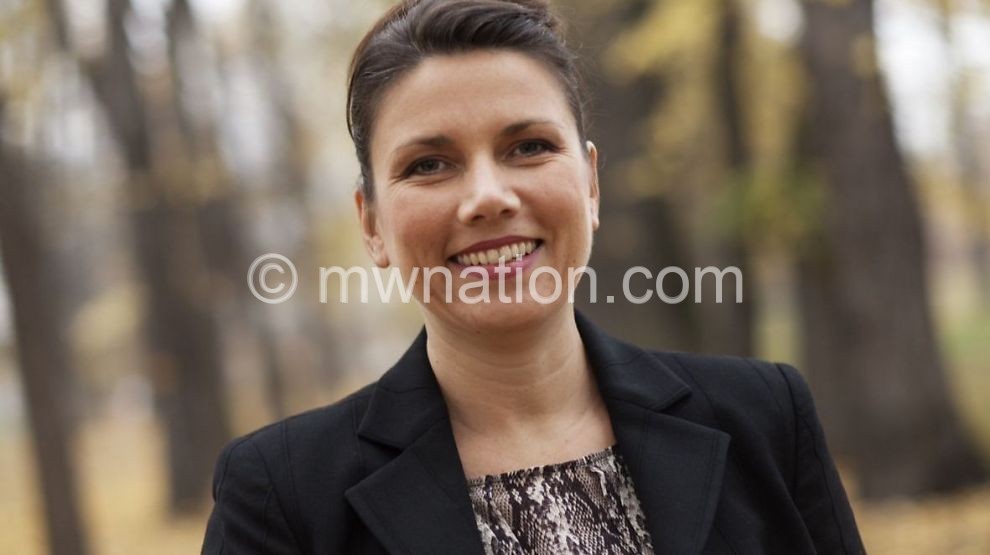‘Malawi can learn from Norway’
Norway, keen on improving Malawi’s uptake of sexual reproductive health (SRH) recently sent in a high powered delegation led by lawmaker Heidi Nordby-Lunde to assess Malawi’s progress. FATSANI GUNYA spoke to Nordby-Lunde why Norway takes particular interest in Malawi. Excerpts:

What is your role back home?
First, I am a Member of the Norwegian Parliament, but I am also a member of the Standing Committee of Budget and Finance and vice-president for the Women’s Organisation of the Conservative Party, and a delegate to the Nordic Council back home.
What is the significance of your official visit to the country?
Primarily my role is to promote sexual and reproductive rights, which is why I am here. The reason why I do that is both knowing how important this is for the sustainability growth of a successful both community and a country. In addition, this is something my government wants to promote, as we see this as a central part of success in our own progress as a country.
As a female parliamentarian, what influence do you have in policy-making that can help promote women integration in society?
I do not have any influence as a “female” parliamentarian. But as a parliamentarian and a member of my party, I can influence our policies and priorities. My goal is to protect and promote the cooperation between our states to uphold and protect human rights, fight harmful traditional practices, and promote available and affordable health care to all, leave no child behind when it comes to school and education, and last but not least in importance—same justice for all, including the minorities. I will be following up on all of these issues.
How keen is the Norwegian government on Malawi’s human rights issues, especially as regards gender equality and sexual reproductive health?
We are very keen. Very much so. Look, Malawi has been one of the countries we have cooperated with for a long time; with gender equality and sexual eeproductive health sectors being some of the key issues.
One of the reasons your team visited Malawi was to check how it is faring in the SRH sector. What has been your impression of the same?
There has been good progress that I believe will over time benefit everyone –from raising the marriage age to 18, and being able to address the different communities about this. What I find most fascinating is the excuses not to change. The religious leaders and political leaders say that their constituencies are conservative and they need to cater to them. But more than 40 percent of the Malawi population is under 30 years old. They are the future. If they are not allowed to, they will be angry. I hope that this generation will be a catalyst for hove, and that politicians will listen to them.
You are the She-4-He Ambassador in your native Norway. Our State President is also the UN ambassador for the He-4-She campaign for the African region. What lessons can you share in this regards?
I first and foremost must express my respect towards the President for his engagement in #HeForShe campaign. It is important, because as you [males] are our fathers, brothers and friends, we will stand up for you. But we really need you to stand up for us [females] your mothers, sisters and friends. It is a true sign of being the greater man. When you do that, I am a #SheForHe.
Malawi is one of the poorest countries in the world with no meaningful natural resources. Is there anything worthwhile we can focus on in attaining socio-economic development?
Absolutely, it is said that Norway is a wealthy country due to our luck in natural resources. Obviously we are lucky to have oil. But our Ministry of Finance looked at the numbers, and said that women participation in the workforce since 1970s has contributed more to the national wealth of Norway than oil. Which means Malawi has an untapped natural resource in women.
How best can Malawi invest in its youth and women?
First and foremost, education. Education, education and education. Within that I would like to have sexual and reproductive rights as part of the curriculum, as we have in Norway. But I would like to add that it is typical to promote girls right to education, which is important, but we need both the girls and the boys to receive quality education. This is to enable equal opportunities to everyone.
Norway is one of the richest countries in the world, share your secrets to such a tremendous success story?
Yes, it is true that that we were very poor as a nation; probably as poor as Malawi is today. Not more than a 100 years ago, Norway was one of the poorest countries in Europe. Actually, our infrastructure was not all that sound. We still had many challenges in our social-economic sector. Even our health sector was not as good as it is today. But our government took a stance, and decided to change things for the better. The whole nation rallied behind such decisions and everyone pulled in one direction to reach this far. But all in all, I do believe that rule of law, good governance and protecting individual rights has been more important in all this than natural resources. Malawi can do this too! n





